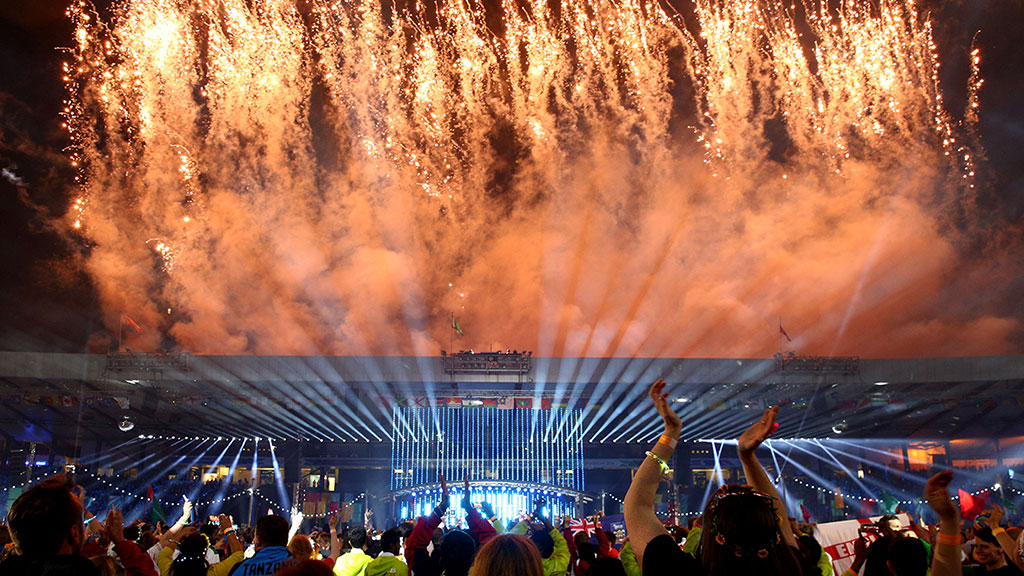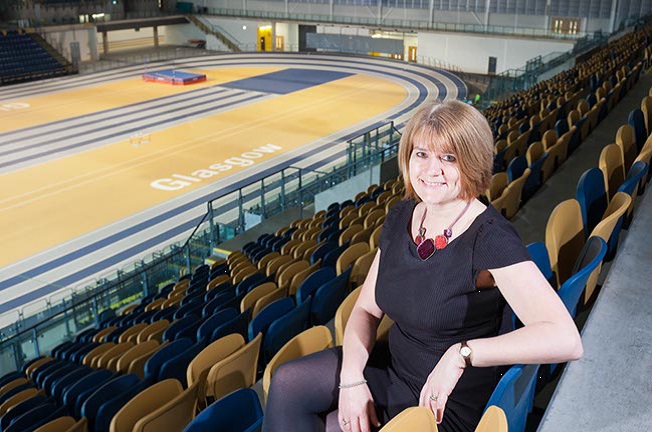Kristine Dickson, executive director at EY, official professional advisor and supporter of the Glasgow 2014 Commonwealth Games, outlines how the challenges presented by a multi-sport event can be overcome by having the right people behind you.
This summer, Commonwealth Games Federation chief executive Mike Hooper lauded the Glasgow 2014 Commonwealth Games as “the standout Games in the history of the movement” after 11 days of international sporting action involving thousands of athletes and officials.
The associated numbers are eye-popping: nearly 3.5 million people filed through the city’s Central Station during that time, more than 1.2 million tickets were sold and 15,000 volunteers made up the army of Clyde-siders who worked tirelessly to ensure the Games were a success. The behind-the-scenes support given to the Organising Committee (OC) by all the sponsors involved was also vital to the smooth running of the event.
EY was appointed official professional advisor and supporter of the Glasgow 2014 Commonwealth Games in September 2011. One of our founding fathers, Arthur Young, was born and educated in Glasgow, so we believed our heritage, history and position at the heart of the city made us a natural partner for the OC.
Our EY team was at the heart of the planning, preparation and execution of the Games. It was our aim to deliver world-class professional services support to help the OC deliver its vision of an athlete-centred, sports-focused event that Glasgow, Scotland and the UK would be proud of.

Integrating services
A key part of this was integrating our methods with those of the OC. In some cases, that led to our staff becoming actual members of that team through secondments. For example EY advisory partner David Leather assumed the role of chief operating officer of Glasgow 2014 Ltd. in April last year.
Previously deputy chief executive of the Manchester 2002 Commonwealth Games, David had first-hand experience of the transformational impact an event such as the Games can have on a city, particularly when private and public sector partners work together cohesively.
David’s role involved him working closely with key external stakeholders such as Glasgow City Council, the Scottish Government, Police Scotland, Transport Scotland, Strathclyde Passenger Transport (SPT) and North Lanarkshire Council.
He led the operational delivery team for the Games and had to work quickly to build a team who had the confidence, ability and experience to achieve Glasgow 2014's ambition of delivering the ‘best games ever’. All of this required clear leadership, direction and decisiveness.
Challenging traditional methods
EY were involved in almost every aspect of the Commonwealth Games providing real-time assurance on areas from the delivery of sports, venues, villages and associated equipment to merchandising, ticketing and ceremonies.
The OC was (understandably) very operationally focussed, so we had to be certain that risk and control was given proper consideration and that the mix of controls were appropriate for an organisation that would cease to exist shortly after the games.
The pace of change was remarkable, so we found ourselves challenging conventional thinking in order for our findings and recommendations to be of real value. A ‘classic’ assurance and internal audit model simply wouldn’t have resulted in an efficient and effective service.
Developing bespoke solutions
Crucially, we worked with the OC and Police Scotland to create an integrated security delivery team that was capable of managing the Private Contract Security (PCS) workforce of more than 6,000 staff. We oversaw training, accreditation, logistics and Security Industry Authority (SIA) licensing.
The team oversaw 17 different security providers, with their work subject to the intense scrutiny expected of the security arrangements of a major event.
Again, integration between EY’s people and processes, those of the OC and, particularly in this instance, the suppliers, was crucial. Our team created bespoke technical systems and developed a reporting system from scratch that could extract and present accurate data in an intuitive form to meet the requirements of the organisers.
This holistic approach led Ian Reid, Glasgow 2014 Ltd’s chief financial officer, to say we “essentially acted as extended members of the Glasgow 2014 team and could be relied upon for advice on the big issues”.
The legacy of the Glasgow 2014 Games has always been one of the stakeholders' critical success factors for the event and we hope that the methodologies, systems and processes developed for Glasgow 2014 will be adopted by the organisers of the 2016 Rio Olympics and the 2018 Gold Coast Commonwealth Games.

